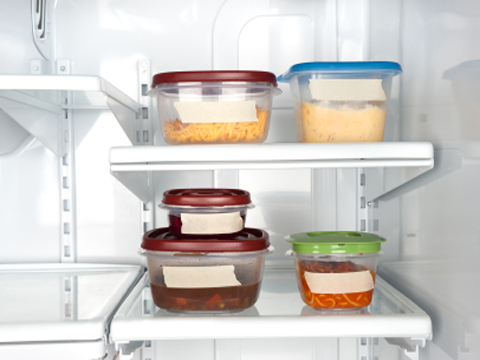Buying local food is one of those things, like regular exercise or healthy eating, that we know we should do, but struggle to do consistently. Sustainable production, greater freshness, fewer food miles and a farmer with a human face give benefits to individuals and communities.
Exeter is surrounded by the fertile soils of the Exe valley and enjoys a warm, southern climate suited to year-round food production. As the capital of Devon, in the south west of England, the city draws from the rich larder of the country's fourth largest county, home to hundreds of farmers, growers and small food producers. It has a population of 117,000, with another half million people in the surrounding region.
Economically the city feels buoyant and the unemployment rate is only 1.9%. New developments like the five-storey John Lewis department store are appearing each year. With its economic strength and privileged position at the heart of food-rich Devon, Exeter has the potential to be the engine of a successful local food economy. If that model can succeed anywhere, it should do here.
David Mezzetti is chair of the board of directors at the Real Food Store in the city centre. When he gives me a tour of the shop, bakery and café, I lose count of the number of times he says ‘we're proud' upon pointing out another local gastronomic gem. On entering the shop, the smell of baking bread hits you immediately. Shelves and baskets fill every space, abundant with fresh vegetables, meats, preserves, loaves of bread, milk and cheese. The walls are painted vibrant blue and green, and the smiles of producers beam out of postcard profiles around the store.
Fresh, seasonal and organic
‘Our aim is to support good local producers - whether it is animal products or vegetable products or food products - to support their operation, to ensure that a wider local catchment can exist in affordable local food.' 'You can, within reason, do a complete shop here,' David tells me. Fresh, local, seasonal and - where possible - organic are their criteria for sourcing products.
The Real Food Store opened in March 2011. The initial idea emerged from a meeting of development group, Transition Exeter, in February 2009. The board of seven directors decided on a community finance model and they raised £153,000 to launch the project. The 320 members of the ‘community benefit society' have each invested a minimum of £100 in the enterprise, in anticipation of social benefits rather a financial return. David feels the model is working well: ‘It gives operational freedom to the board or the business or the team or the staff, to run the business, rather than being a co-op which is run for the benefit of its members. ‘For £100 people have bought themselves the shop that they want. What better deal could you have?'
David cites the on-site bakery, Emma's Bread, as evidence of the shop's positive impact for Exeter's food producers. ‘Emma was basically selling at the farmers market and in a few shops in a committed but a rather small way. I think she would have soon found herself, if this hadn't existed, likely to move on and do something more interesting. ‘Not only has it enabled the bakery to be a thriving bakery supplying this store, but she's also now supplying the other independents.'
Last year, sales in the shop and café were around £530,000, below the estimates in the original business plan. However, David predicts that, in five years' time, the store will be earning sufficient surplus to cover the early losses, move into a larger premises and allow the board to step back into a more strategic role. The board is discussing with the Exeter City Council how to create an environment where social enterprises can flourish. ‘We think that we have got something quite significant going with the council about anchoring, helping them to understand the importance of the food story in Exeter.'
Street food
In Topsham, a tiny port two miles from the centre of Exeter, a large converted van is parked on the roadside. On the left side of the vehicle, double doors open out, and a yellow access step leads onto the pavement. Inside, it looks like the Real Food Store in miniature: familiar local products line bespoke shelves, an upright fridge hums at the back running off a generator, and the welcoming spectacle of plump, red strawberries draws the eye.
Jo Cotter, founder, director and education officer of social enterprise Love Local Food, welcomes me on board the mobile shop. She tells me this is actually the third van they have used. Previous incarnations were much smaller, with a makeshift till out of the back of a truck providing little cover on rainy days. ‘The new truck provides access to people to get on and off, we don't get wet and we can stock more stuff which is important.' Love Local Food was formed six years ago after a meeting of several local producers.
They wanted to create a new outlet for their products and the idea of a mobile shop stood out. Initially, they received £10,000 of funding from the Big Lottery Fund's ‘Awards for All' programme for a six month pilot project. After a successful trial, the group received two successive injections of funding from Local Food Grants, allowing them to spend more days out in the store as well as carrying out food education work around the city. ‘It's quite an old-fashioned way of doing things. We wanted to give it a go and see what happened and the response was really good.' The mobile shop runs from Tuesday to Saturday each week, visiting about ten locations in Exeter and the surrounding villages every day. The shop carries with it a feeling of community.
As Jo and I speak, regular customers drop in for a shop and a chat, while passers-by are drawn in magnetically by an unusual vehicle and those oh-so-tempting strawberries. 'Slowly we've built up more [customers], but at every stop we go to there are regulars. Obviously you get people that pop in and come sometimes... or people just on holiday and they pop in and they're like, "Wow this is amazing, why can't we have this where we live?"'
Their average customer spends between £7 and £8 in the shop. As a rough comparison, the average in farm shops in the UK is around £13. 'What we try to do is mix up where we're going, so that we'll get some stops like [relatively affluent Topsham] at the end of the day where we know we're going to make a lot more money, because people are going to be buying more things, interspersed with places where people haven't got the money to spend.'
Exactly how the shop will develop in the future is uncertain. Their projected sales at the third round of funding were far higher than their current takings. The directors are also discussing a different model, perhaps using the warehouse as a food hub for producers to bring larger volumes of stock to sell to customers directly. 'Yes I think we can [run the business sustainably], but I think it's going to take us much longer than we anticipated because of the fact that we're dealing with the global food market and it's changed a lot. However, people's interest in local food and organic food is still there and actually is very different to how it was ten years ago.'
Death of independent retailers
Having heard from the retail end of the Exeter's local food economy, I needed the perspective of a producer. Martyn Bragg runs Shillingford Organics, a vegetable farm three miles from Exeter city centre. Martyn and his team deliver 170 vegetable boxes each week, attend several markets, and supply local outlets including the Real Food Store and Love Local Food. In 2001, he entered into a box scheme partnership with Tim Deane, a pioneer of the practice, in the nearby Teign Valley. In 2004, Tim retired and Martyn started Shillingford Organics.
We spoke at his thick wooden kitchen table over mugs of milky tea. I noticed how mud from the vegetable field had crept its way - perhaps permanently - under his short fingernails. He proposed a contrasting interpretation of Exeter's local food landscape. ‘Exeter's been notorious for the deaths of several small enterprising local food shops over the last ten years... If you pay rent and rates on a property in Exeter, and have product that's got a very low margin, especially fruit and vegetables, you have to have an enormous turnover.'
Martyn says he could probably sell more organic vegetables to the small town of Totnes than to Exeter, despite it having a far smaller population of roughly 10,000. 'The reason we can sell well in Totnes or in that area is because people want local. Unless you change the whole culture at the end of the day - you could do other things like give a rates break for small local food shops which they ought to do really - people have got to go there.' His farm, The Barton, covers 400 acres, but he only grows vegetables on about 10-12% of his land. Martyn believes he has potential for growth if demand were sufficient: ‘The reason we don't grow more vegetables is because we haven't got outlets for them.'
Small shops selling small quantities keeps his profit margins low, which is not good for a medium-sized grower. The greater cost of local and organic food - or at least the perception of it - is one barrier to demand, particularly in testing economic circumstances. Vegetables from Shillingford Organics are substantially cheaper than their organic equivalents in supermarkets, but slightly more expensive than non-organic produce. 'You somehow find a way to get produce to people in a cheaper way and then promote the fact that it's cheaper. But, for some reason, people just love the security of their normal supermarket, don't they? I don't know what that feeling is about.'
Despite his concerns, Martyn still sees a clear route to a successful local food system: 'If the culture shifted to a local food thing, then you'd get more producers coming on board, more farmers locally would use their land for growing local produce, then it'd become competition... We'd just become more efficient at producing local produce. It's the market; it's the chicken and egg situation.'
It seems that creating a strong local food economy needs more than just the right ingredients. Exeter has a relatively affluent population, good transport links and plenty of delicious, reasonably priced, local produce. Retail outlets are the vital connector between farmer and shopper, but they are enjoying mixed success. Wherever it may be, a local food economy needs social or private enterprises running on strong, sustainable models, with the local government creating an environment for them to succeed. Ultimately, people make the choice where they spend their money. In Exeter, there is a core of producers, activists and shoppers who desperately want an economy based on fresh, local and seasonal food. However, unless that culture becomes more popular, the domination of the supermarket across Britain won't be ending any time soon.
Charlie Taverner writes a regular blog Earth Blog 21
| READ MORE... | |
 |
GREEN LIVING In season now: what to eat during January Love British Food’s Alexia Robinson talks seasonal eats, New Year’s resolutions and a gastronomic alternative to the Olympics |
 |
GREEN LIVING Ethical food: four new year's resolutions that you can keep It’s resolution time again so start 2012 on an eco-friendly note by cutting out food miles and eating less meat |
 |
GREEN LIVING Leftovers: the ultimate guide Pile of leftover turkey driving you crazy? Here's our guide to dealing with it the eco-friendly way |
 |
GREEN LIVING How to make your own booze With no food miles, no additives and no duty involved, making your own alcohol saves both money and the planet. Hannah Corr explains how to get started |
 |
GREEN LIVING Coffee: is the black stuff as green as it should be? From deforestation to fertiliser; our taste for coffee has left some of the world’s most precious eco-systems in a precarious state. George Blacksell looks at how the coffee industry is cleaning up its act |





